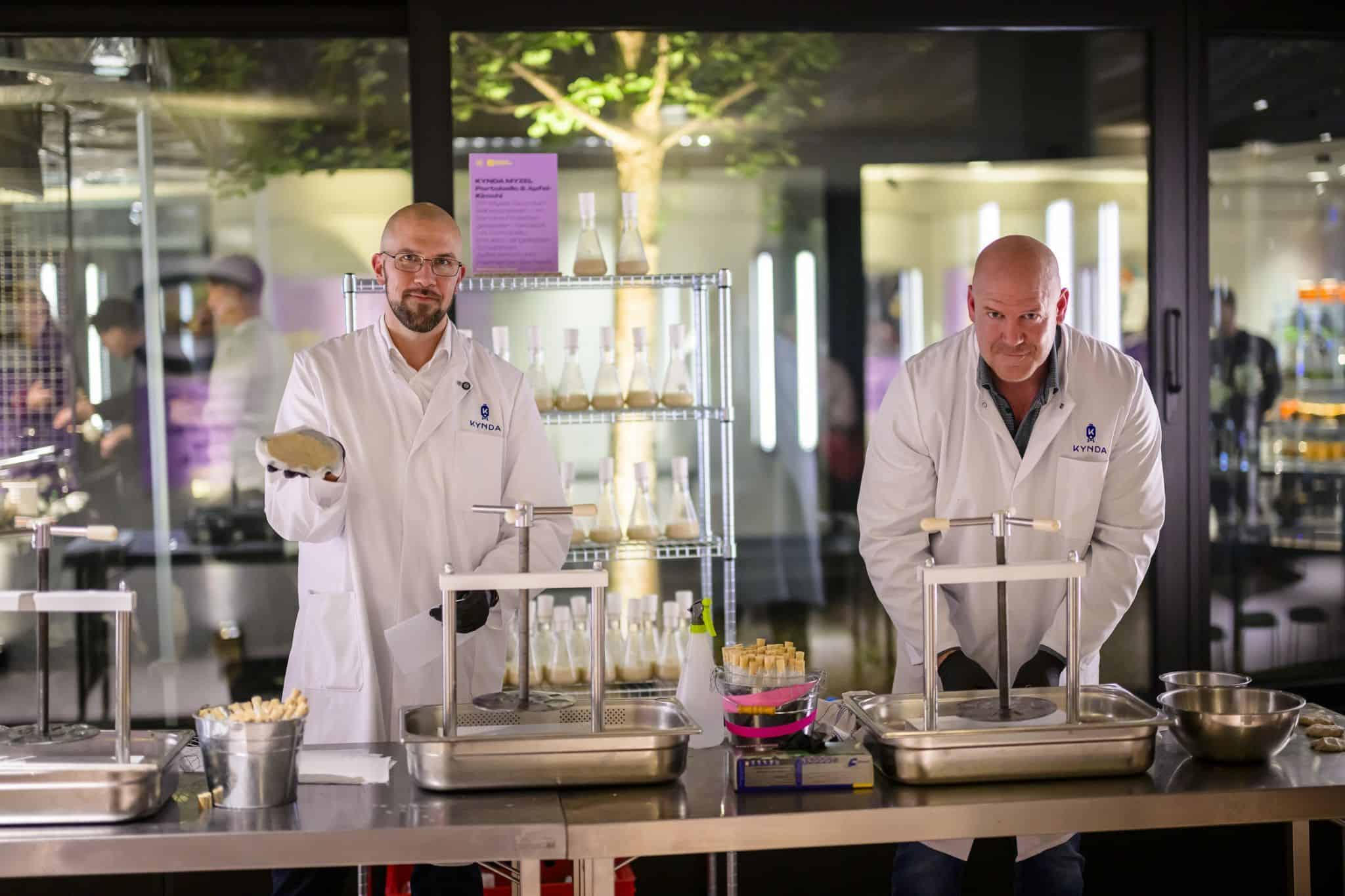

Ivy Farm Technologies partners with Fortnum & Mason to create a cultivated scotch egg
UK-based cultivated meat company, Ivy Farm Technologies, and the historic British grocer, Fortnum & Mason in London's Piccadilly, have announced an interesting collaboration involving technology for the future with a +300-year-old British delicacy: the scotch egg. The innovative product was created exclusively for a panel discussion, 'The Future of Meat Production’, held on 31 January 2024 in the Food & Drink Studio on Fortnum’s third floor.
As a one-off collaboration, the handful of cultivated meat scotch eggs were created exclusively for the panel discussion in Fortnum & Mason’s Food & Drink Studio on the future of meat production to highlight the environmental implications of industrial farming. The scotch eggs were created for the purposes of the event and there are no plans to sell in the future, Fortnum & Mason has insisted. This experimental iteration of the scotch egg indicates both Fortnum & Mason’s willingness to innovate, and Ivy Farm’s ambition to reach consumers and provide them with a sustainable and tasty alternative to popular products.
The scotch eggs were sampled by pre-selected attendees prior to the discussion. The panel was made up of speakers from both innovative food tech companies and traditional agricultural businesses. Hosted in the recently launched Food & Drink Studio, the event is part of an ongoing series of conversations led by Fortnum & Mason around the future of food innovation that bring together voices across technology, agriculture and hospitality.
During the near 300-year history of the scotch egg, which was first created by Fortnum & Mason in 1738 as a meal for travelers heading west from Piccadilly, the brand has both adapted the product in response to financial and logistical challenges, such as meat shortages during the Second World War, and innovated it to meet changing consumer tastes. By experimenting with cultivated meat, Fortnum & Mason is innovating once again, exploring ways it could look to reduce the environmental impact of its products in the future.

The process of creating the beef mince for the scotch eggs involves taking a cell sample from a farm-raised animal and cultivating these in fermentation tanks at Ivy Farm’s 18,000ft2 facility in Oxford. The meat is then grown and harvested from Ivy Farm’s pilot plant, which resembles a craft beer brewery to the untrained eye, in order to produce real meat that has a healthy nutritional profile and a more sustainable carbon footprint. Through this process, Ivy Farm produces 92% less emissions, 90% less land, and 66% less water than conventional beef farming.
Commenting on the collaboration, Fortnum & Mason’s Hatty Cary, Food & Drink Studio Producer, said, “We are thrilled to have had the opportunity to work with Ivy Farm to create the world’s first cultivated meat scotch egg, having launched our original almost 300 years ago. Fortnum's has always embraced innovation, but our recently opened Food & Drink Studio allows us to truly place ourselves at the heart of conversation and discovery. It has been fascinating to examine what the future of meat production might look like by bringing together voices from the world of technology, agriculture and hospitality, and experimenting with such cutting-edge science.”
“Fortnum & Mason is an iconic heritage brand in the UK, so to recreate the scotch egg, an equally as iconic British snack, with our cultivated meat is an exciting opportunity to showcase how we can keep eating the nutritious and delicious meat that we love, but made in a different way," added Emma Lewis, Chief Commercial & Product Officer at Ivy Farm (pictured above). Cultivated meat uses cutting-edge technology born out of Oxford University to create the delicious meaty layer of the infamous scotch egg, a staple snack enjoyed in picnics and pubs all over Britain. Once we have scaled up, collaborations and partnerships like this will be pivotal as we look to introduce consumers to cultivated meat products on a wider scale, building acceptance in their quality and taste, and an understanding of the environmental benefits they can provide.”
The panel discussion, titled ‘The Future of Meat: farmed, lab-grown or phased out?’, took place on Wednesday 31 January at Fortnum & Mason’s Food & Drink Studio. You can read more about the event and the scotch egg on Fortnum & Mason’s blog.
If you have any questions or would like to get in touch with us, please email info@futureofproteinproduction.com

.png)


.jpg)



